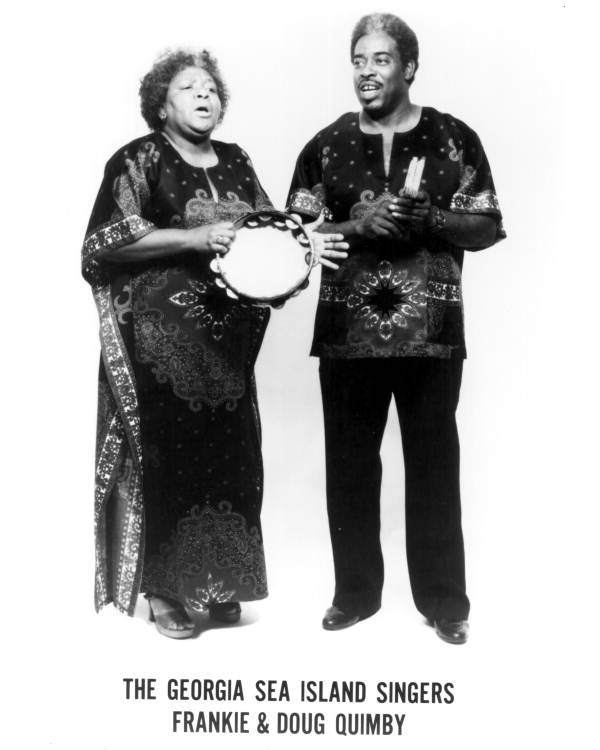The multicultural emphasis in Jon Sundell’s programs is based in long standing interest, reading and study, extensive travel, and varied experiences. Throughout his life Jon has been an outstanding advocate for cultural diversity and understanding. Below are some touchstones of his MULTICULTURAL CONNECTIONS.
CHILDHOOD AND YOUTH - IMMIGRANT ANCESTORS
 As the grandson of Russian Jewish immigrants, Jon was taught early to accept and appreciate people of different ethnicities and religions. Over the years, as he has come to experience different cultures from his own, he has increasingly reached back to draw on the rich folklore, humor and personal stories of his grandparents and their immigrant experience.
As the grandson of Russian Jewish immigrants, Jon was taught early to accept and appreciate people of different ethnicities and religions. Over the years, as he has come to experience different cultures from his own, he has increasingly reached back to draw on the rich folklore, humor and personal stories of his grandparents and their immigrant experience.
EARLY INTERNATIONAL STUDY AND EXPERIENCE – EUROPE AND ASIA
- College years –
- Jon minored in Asian Studies, including such topics as Asian art, Hinduism and Buddhism, Sanscrit (the ancient language of India) and Japanese literature.
- Studied abroad in Aix-en Provence, France during his sophomore year.
- Travelled through Tunisia and Europe, including Italy, Switzerland, Greece, Yugoslavia, Denmark, England and Scotland.
- 1970 – Jon lived for a year in Japan. Contrary to the trend of other Americans and Europeans, Jon chose to live in an all-Japanese section of Tokyo, in a Japanese style apartment with only futons, cushions and a small coffee table for furniture. He studied Japanese on his own and conversed daily with his Japanese friends and neighbors. Before returning home Jon travelled independently throughout much of the country. The photo gallery has a section of his photos from Japan.
SOUTHERN APPALACHIA
1970’s - Jon moved to Knoxville, Tennessee on the edge of the Appalachian Mountains. While serving as music director of the Epworth Ministry, an ecumenical project of the Methodist and Episcopal churches that supported cultural heritage and day to day needs of poor Appalachian people, he directed the “County Arts Project” under a grant from the National Endowment for the Arts. As part of the grant he:
- collected songs from older Appalachian singers and storytellers,
- organized community festivals where they could perform, and
- personally shared their music and tales with young people in rural mountain schools and community centers.
Later, a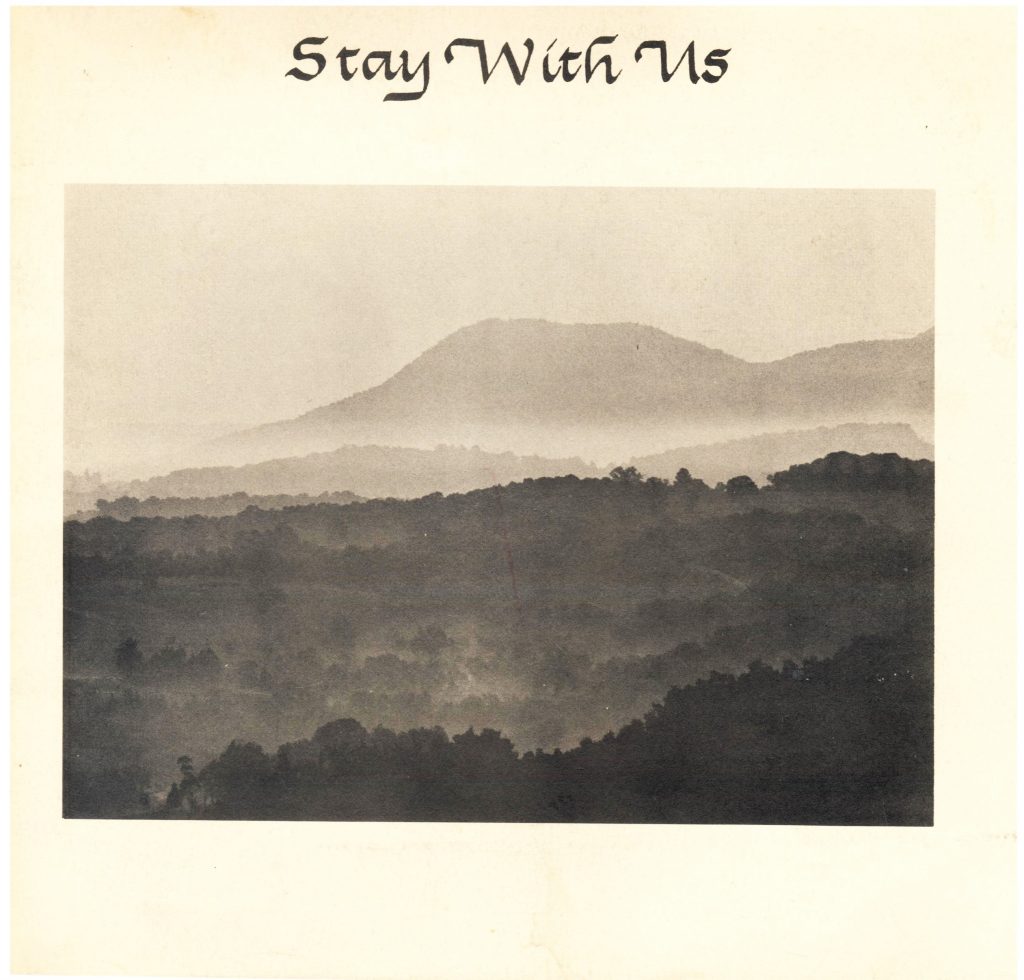 s Jon taught folklore and music in an alternative school in Atlanta, he took his students on month-long field trips to visit with the traditional folk artists he knew. He and his students created a book entitled, Stay With Us: Visiting with Old Time Singers and Storytellers in the Southern Mountains. In the publications section clicking the main bar you can see the complete book.
s Jon taught folklore and music in an alternative school in Atlanta, he took his students on month-long field trips to visit with the traditional folk artists he knew. He and his students created a book entitled, Stay With Us: Visiting with Old Time Singers and Storytellers in the Southern Mountains. In the publications section clicking the main bar you can see the complete book.
- Jon attended various workshops and gatherings at the Highlander Folk School, a retreat center where much of the strategy for the Civil Rights Movement had been planned. He participated actively in initiatives to lift up the traditions of Appalachia among its native population and fight the incursions of strip mining in the region. He lent his musical talents toward the work of SOCM (Save Our Cumberland Mountains), a grass roots organization opposing strip mining in the region.
- 1980 – Jon was contracted by the Georgia Folklore Society to assist the internationally renowned African American Georgia Sea Island Singers in drawing the local Black community to their Georgia Sea Island Festival.
- Early 1980’s – At the request of the Southern Arts Federation in Atlanta, Georgia, Jon formed and led the Southern Heritage Folk Tour, which travelled throughout the southeast presenting southern string band music, traditional Appalachian storytelling, African American singing games and traditional ballads and folk songs.
- 1992-1995 – As head of Children’s Outreach for the Forsyth County Public Library Jon developed strategies and coordinated services primarily for lower income Black children and families through mini-libraries, day care centers and a bookmobile that he purchased.
LATIN AMERICAN CONNECTIONS
- 1980’s - Jon formed and led a local chapter of the Carolina Interfaith Task Force on Central America to educate US citizens about the effects of our foreign policy on people living through civil wars in Nicaragua, El Salvador and Guatemala.
- Jon travelled to those countries with the Center for Global Education to see and speak with people involved in their conflicts. The photo gallery contains sections on the Central American countries.
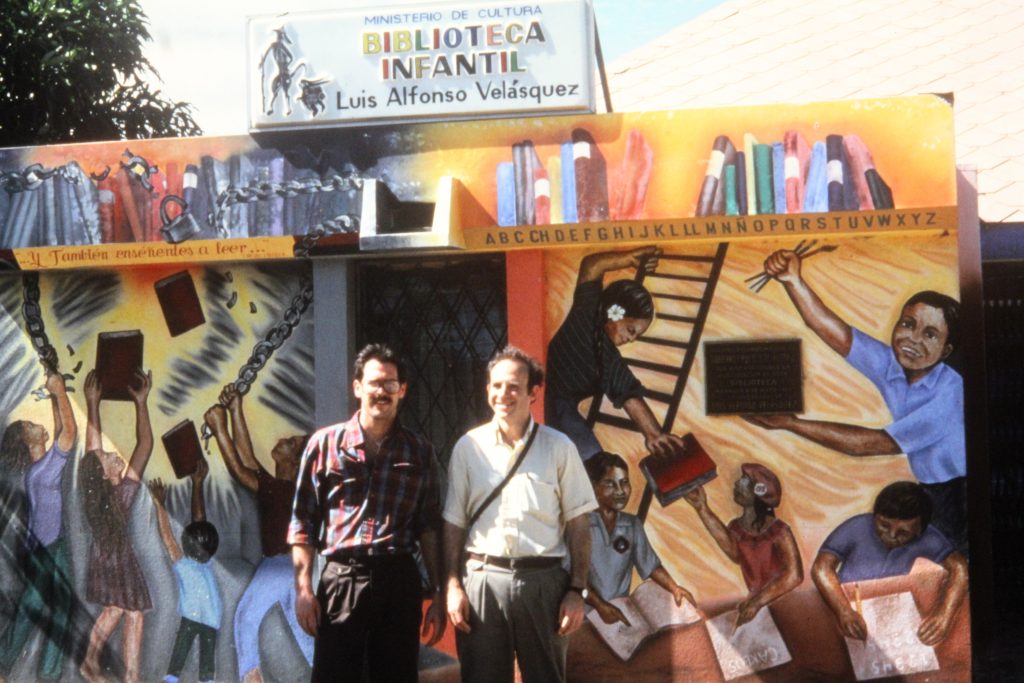
- During his visit to Nicaragua, he performed for the organization, Libros para Niños, which created children’s libraries throughout the country.
- Jon began building a repertoire of Latin American songs of solidarity to assist in his work for peace and justice in that region.
- 1980’s and 1990’s – Jon travelled to San Miguel de Allende, Mexico every year or two to visit his parents, who were living there and his father painting local street scenes and landscapes. While there he frequently studied Spanish at the local Casa de la Luna institute. The photo gallery has a section on Mexico.
- Jon travelled to those countries with the Center for Global Education to see and speak with people involved in their conflicts. The photo gallery contains sections on the Central American countries.
- 1998 Under guidance from the Washington DC organization, Voices on the Border, Jon led a church mission trip to El Salvador to visit with members of the mountain community of Torola, which had suffered extensive damage during the civil war, to see how the church might assist them.
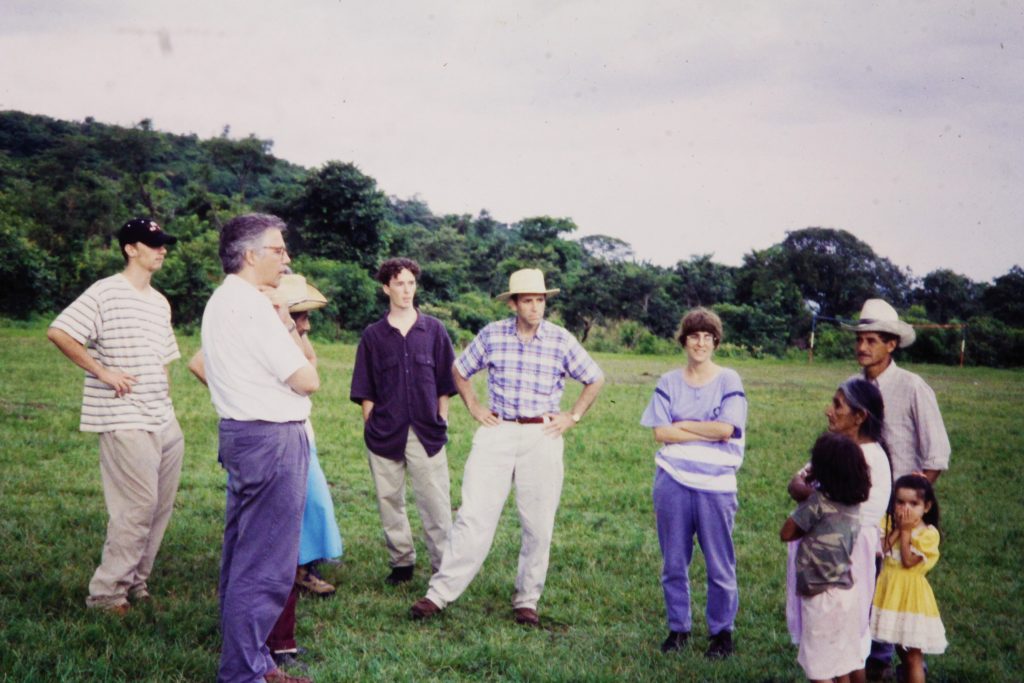 In the photo gallery there is a large section of photos from El Salvador.
In the photo gallery there is a large section of photos from El Salvador.- Jon performed with fellow musicians Mark and Sally Wingate in local Salvadoran communities during his visit.
- Using Piedmont Triad connections and those of REFORMA, the National Association for Library Service to Latinos and the Spanish Speaking, Jon and his church group raised $2,000 through the raffle of his father’s painting, “History,” depicting a contemporary scene in San Miguel de Allende, Mexico, with an underpainting of the Mexican Revolution. The money was donated to Libros para Niños to create a community library in the town of Segundo Montes near Torola, El Salvador.
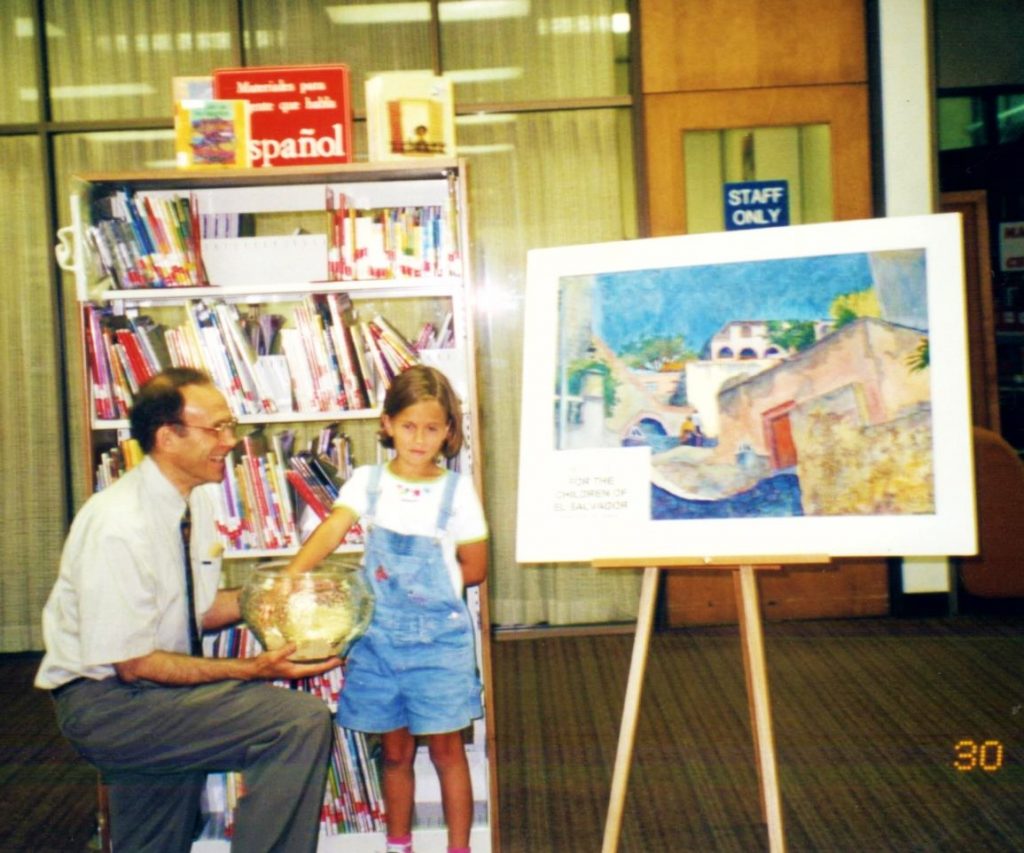
- 1998 – While in Central America for the Torola trip, Jon visited Nicaragua and Guatemala a second time, viewing the countries in their post civil war states. He also stayed with a local family and studied Spanish again in Guatemala, this time in the ancient city of Antigua.
- From 1996 through 2005 Jon visited Costa Rica, Venezuela, Peru and Colombia. He returned to Colombia several times to visit Vivian Dominguez, whom he married in 2006, and her daughter Ana Maria. Vivian and Ana Maria moved to Winston-Salem, where they joined Vivian’s three sisters, thus introducing Jon to the tight knit extended families of Hispanic culture and a non-stop schedule of birthday parties, family reunions and salsa dancing! The photo gallery has sections of personal photos from Costa Rica and South America.
WORK WITH HISPANIC POPULATIONS IN NORTH CAROLINA AND THE US
1990’s. Jon served on the board of the Hispanic Services Coalition, an assemblage of non-profit service organizations working to educate the rapidly expanding Hispanic community about local social services and guide service providers in assisting them. As part of a grant from the Winston-Salem Foundation to create a comprehensive written manual of recommendations, Jon co-wrote the plan for educational services.
- 1997 – 2005. Jon founded and led the Hispanic Services Department of the Forsyth County Public Library. He developed a broad network of communication through Hispanic churches and service organizations to educate Hispanics about library services. He also built a large Spanish language and bilingual collection at targeted library branches and designed a Hispanic bookmobile which began carrying materials into the poorest neighborhoods.
- Jon became a national leader of library services for Hispanics in the states experiencing recent growth. He served one year on the board of REFORMA: The National Association for Library Services to Latinos and Spanish Speaking as the at-large representative. He led workshops on Hispanic outreach and programming at the American Library Association national conference and various regional library conferences.
- 2002-2004. Jon served on the board of directors for the Hispanic League of the Piedmont Triad, heading the committee for children’s and family programming. He organized the children’s area of the annual Hispanic League Fiesta for several years. He collaborated with the public library to create an annual Christmas posada ceremony at the central library.
- 2003-2010 Jon spearheaded formation of the Hispanic Arts Initiative with a group of local Hispanic artists and community members. Jon served as volunteer director for five years as HAI began under the Hispanic
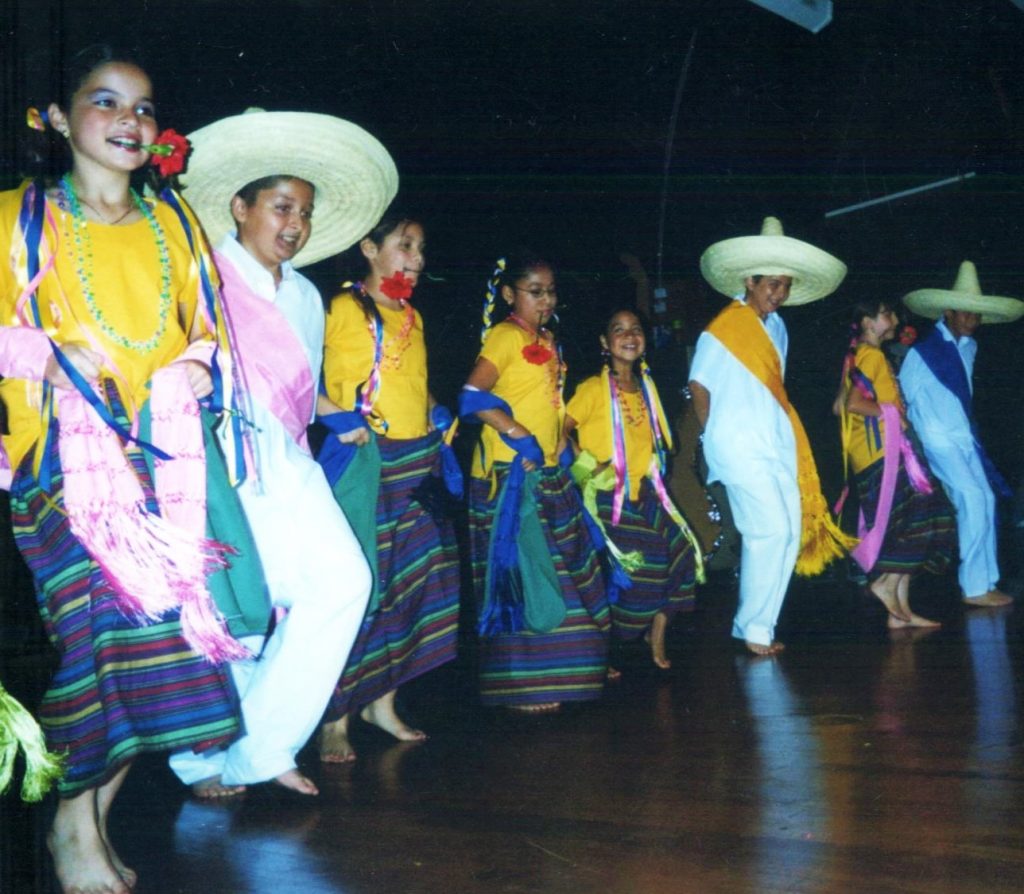 League, then formed an independent 501 C3 non profit organization. HAI accumulated grant support until it was able to hire a paid full time director.
League, then formed an independent 501 C3 non profit organization. HAI accumulated grant support until it was able to hire a paid full time director.- Seeking to form a cultural bridge for recent immigrants and honor Latino culture for their more acculturated children, the Hispanic Arts Initiative offered classes in painting and drawing, guitar and piano, traditional and modern Latin dance, and puppetry. These were taught in Spanish (or bilingually where necessary) by local Hispanic artists. See the photo gallery section on the Hispanic Arts Initiative.
- 2006-2016 Jon worked as media coordinator in the Winston-Salem Forsyth County School system at three schools with majority Hispanic populations – Latham Elementary , Hill Middle, and Old Town Elementary School. He greatly expanded the collections of Spanish language, bilingual, and Latino-themed English language materials at all three schools. At Old Town Elementary, which has a developmental bilingual program, Jon presented many bilingual storytimes. He was also instrumental in reaching Hispanic parents through bilingual workshops on reading to and with their children as part of a federally funded “Reading Railroad” early literacy grant.
GENERAL MULTICULTURAL CONNECTIONS
Multicultural Committee
Jon initiated this public library committee and led it for the first three years. Library director Sylvia Sprinkle-Hamlin coined the nickname “Mr Multicultural” for Jon because of his many programs and initiatives for and about diverse cultures.
Lanterns of Hope (Photo gallery has a section on Lanterns of Hope)
- In 1988, while serving as children’s librarian at Rural Hall Branch Library, Jon heard about and adopted an international project promoting peace entitled Lanterns of Hope. In this program children wrote and illustrated messages of peace and friendship on paper lantern shades, which were mailed in batches to adult contacts in other countries, in exchange for lanterns sent to Winston-Salem.
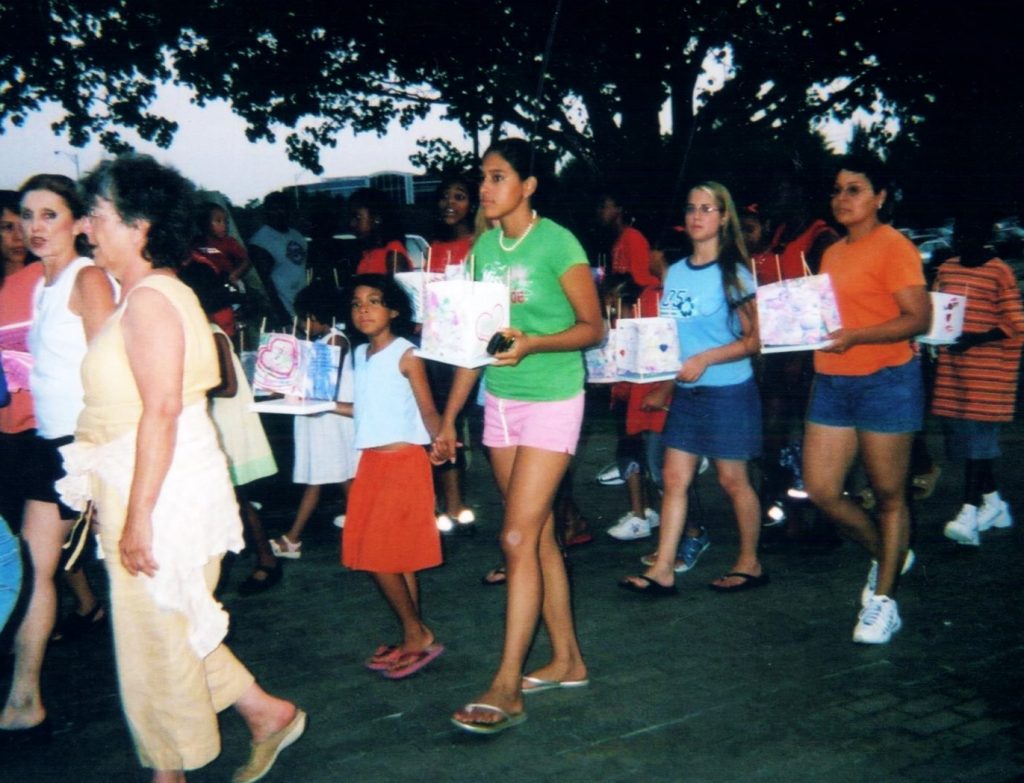
- During a lakeside program honoring Hiroshima Day the children made up a simpler shade and mounted it on a lantern base with a votive candle.
- After watching performances from different cultural traditions, the lanterns were chained together and towed by a canoe for a tour of the lake at nightfall.
- The program became an annual tradition and the lakeside program was soon adapted as a county-wide activity run by a library committee in collaboration with other community groups. The program rotated to different water-based sites around the city, including Tanglewood Park, Salem Lake, Winston-Lake and the fountain at Corpening Plaza. The lantern floating was preceded each year by performers from different cultural traditions.
- At its height under Jon’s direction, strings of 200-300 lanterns graced the host lakes. Lanterns of Hope continues to this day, the longest running children’s program in the Forsyth County Public Library system.
Multicultural Writing Project
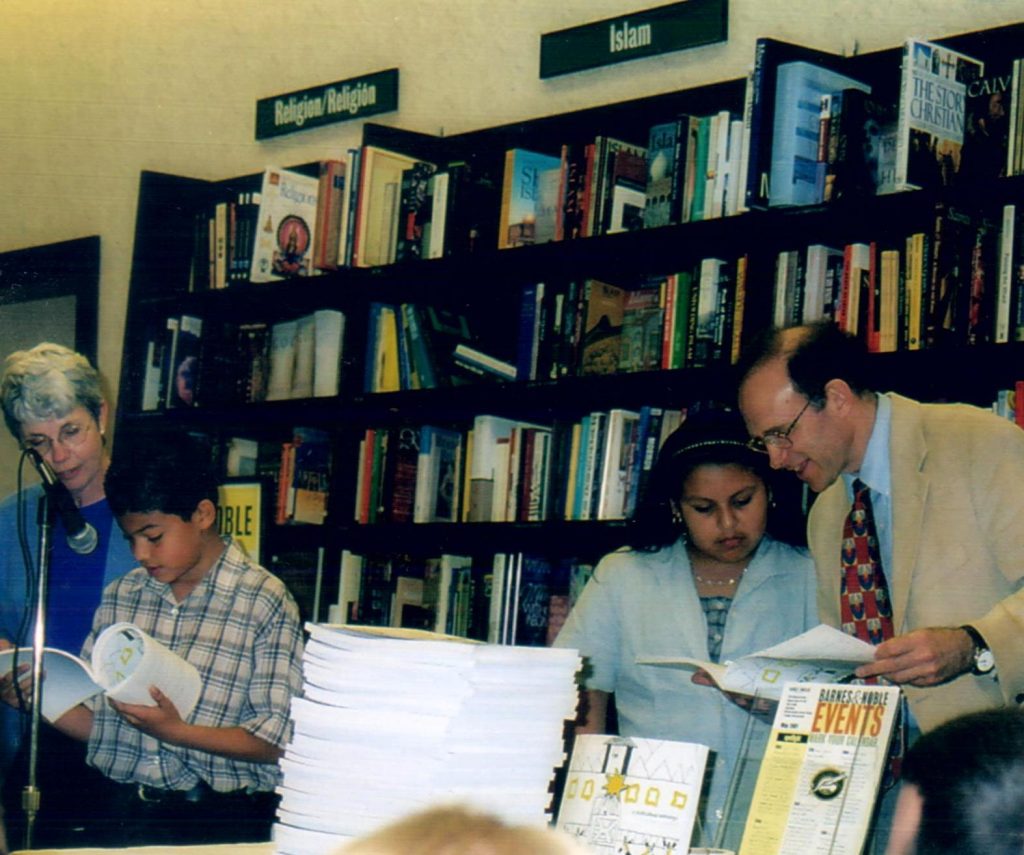 In 2001 and 2002, while serving as director of Hispanic Services, Jon applied for and received NC State Library funds to create a student written publication representing different cultural backgrounds and experiences of local students.
In 2001 and 2002, while serving as director of Hispanic Services, Jon applied for and received NC State Library funds to create a student written publication representing different cultural backgrounds and experiences of local students.
- Jon collaborated with ESL classes and other groups to bring them three authors per year from different ethnic backgrounds to discuss and read from their works.
- The authors gave the students a writing assignment to be completed under their teachers’ supervision.
- Students also used disposable cameras and/ or their own drawing talent to create illustrations. Jon and his assistants selected the best articles and translated them, as well as the best illustrations to accompany them.
- The results were published in 500 copies of Many Voices, One World: A Multicultural Anthology, which were distributed free through the students’ families and community locations. Excerpts from the anthology are displayed in the Publications section of the web site.
- In the project’s second year an author signing was held at Barnes and Noble Bookstore. Proud students read from and signed their articles for a large audience of enthusiastic parents, community members and press representatives.

